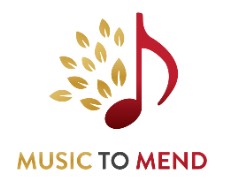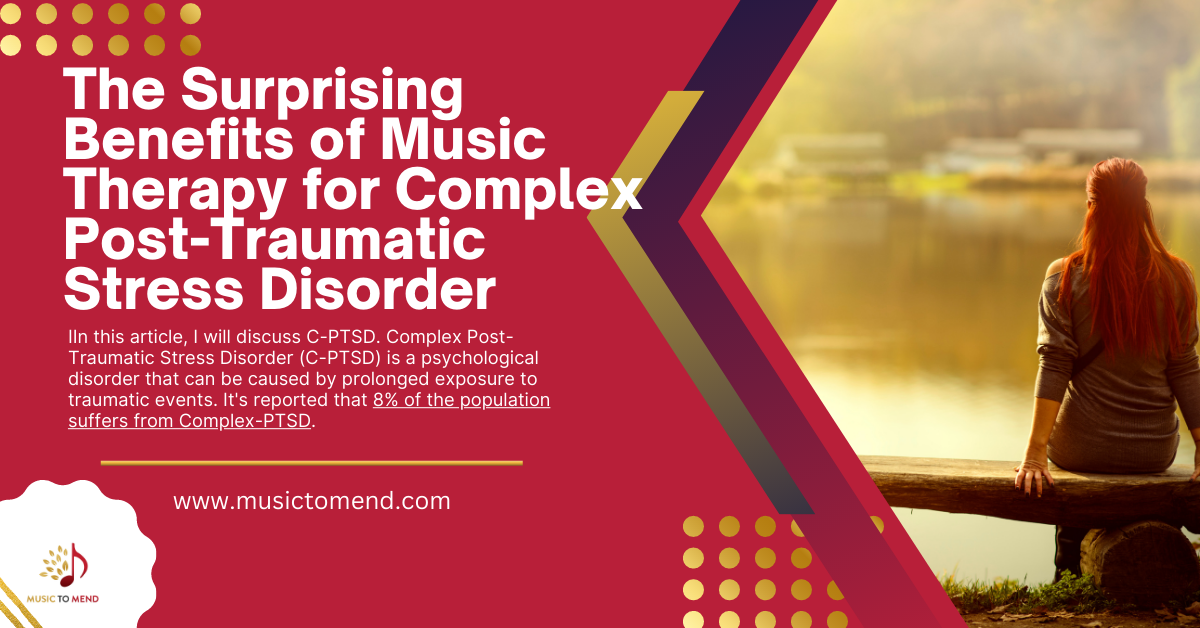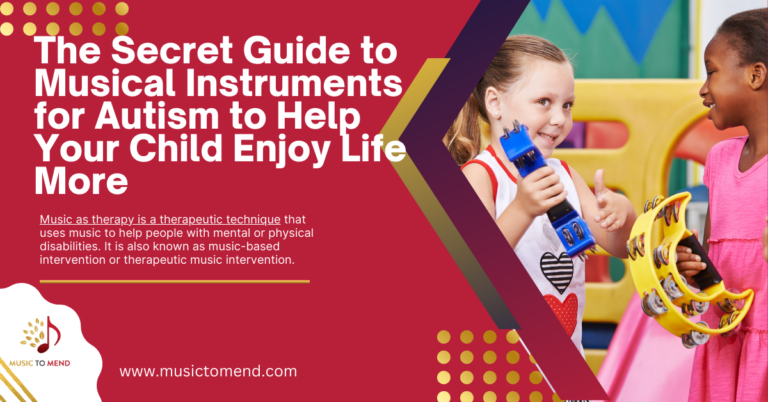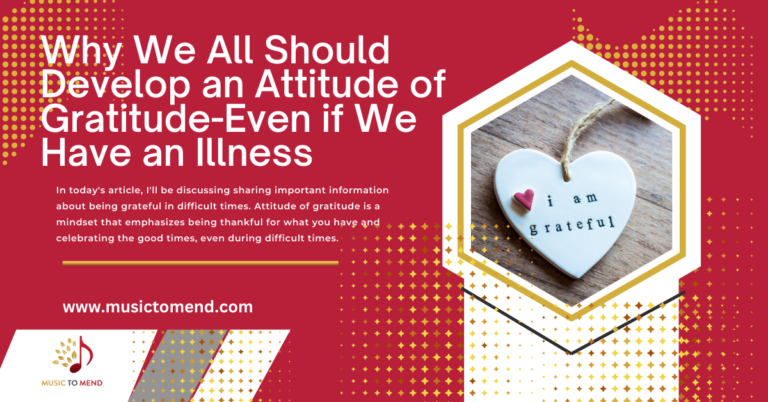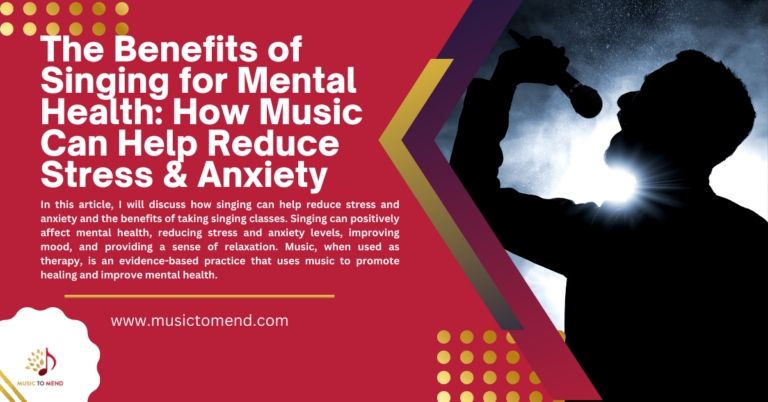The Surprising Benefits of Music Therapy for Complex Post-Traumatic Stress Disorder

What is Complex PTSD and How Can Music Therapy Help?
In this article, I will discuss C-PTSD. Complex Post-Traumatic Stress Disorder (C-PTSD) is a psychological disorder that can be caused by prolonged exposure to traumatic events. It’s reported that 8% of the population suffers from Complex-PTSD. It is characterized by symptoms such as depression, anxiety, flashbacks, and emotional dysregulation. Music as therapy has been found to be an effective treatment for C-PTSD. It can help people process their trauma and reduce their symptoms by providing a safe space for them to express themselves through music. Music therapy also helps people develop healthier coping skills and build resilience in the face of adversity. With the help of music therapists or taking music lessons, individuals with C-PTSD can learn how to manage their emotions better and find healthy ways to cope with life’s challenges.
PTSD and Complex PTSD both share many similar characteristics, but it’s important to know they’re distinct disorders with unique treatment approaches. Post Traumatic Stress Disorder is typically caused by a single traumatic event, whereas Complex PTSD (which is also known as Developmental Trauma Disorder) is usually caused by long-term or repeated exposure to distressing situations such as the death of a family member, or close friend, sexual or physical assault or abuse.
Treatment Options for Both Conditions – Including Psychotherapy and Medication and Music Education
Post-traumatic stress disorder (PTSD) and complex PTSD (C-PTSD) are serious mental health conditions that can have a debilitating effect on the lives of those affected. Fortunately, there are a variety of treatment options available to help manage the symptoms of these conditions. These include both psychotherapy and medication.
Psychotherapy is often used as the primary form of treatment for PTSD and C-PTSD. Cognitive behavioral therapy, exposure therapy, and other forms of talk therapy can be effective in helping individuals to understand their trauma better, process their emotions, and develop healthier coping mechanisms.
Medication can also be used to treat both PTSD and C-PTSD. Antidepressants, anti-anxiety medications, mood stabilizers, antipsychotics, and other medications may be prescribed depending on an individual’s specific needs. However, it is important to note that medication should not be used as a substitute for psychotherapy but rather as an additional tool.
The Benefits of Taking Regular Music Lessons to Relieve Stress & Anxiety in Complex PTSD
Music has been used as a tool to help people cope with trauma, stress, and PTSD for centuries. It can be an effective way to help people process their emotions and heal from traumatic experiences. Regular music lessons can effectively relieve stress and anxiety for people with Complex Post-Traumatic Stress Disorder (cPTSD). Music lessons can help C-PTSD patients express their emotions safely and creatively while also providing a distraction from traumatic memories. Musical instruments such as the piano or guitar can be used to provide calming rhythms and soothing melodies that can help reduce stress levels. Additionally, learning how to play an instrument provides a sense of accomplishment which can boost confidence and self-esteem. With the right guidance, taking regular music lessons can be a great way for Complex-PTSD patients to cope with their symptoms.

What Types of Instruments are Best Suited to People with C-PTSD?
People with C-PTSD (Complex Post Traumatic Stress Disorder) can find solace in music as a form of therapy. Music can help them to relax, focus and express their emotions in a safe manner. Various instruments, such as strings, percussion, and wind and brass, are particularly suited for people with C-PTSD. The piano is also a wonderful instrument to learn and promises to bring countless hours of relaxation. These instruments promote relaxation and focus while providing an outlet for creative expression. They are also therapeutic, helping reduce stress and anxiety while promoting healing.
Healing Through Music Therapy – How to Practice at Home
Music as therapy is an evidence-based clinical practice that uses music interventions to help people reach their physical, mental, and emotional goals. It has been proven to be effective in helping people manage stress, pain and even improve their overall well-being.
With the right musical therapy techniques, you can practice at home and experience the same benefits as if you were in a professional setting. You can use music to reduce anxiety, depression or even just relax your mind and body. Self-care with music is a great way to reduce stress levels and improve your mood.
Exploring Different Genres of Music & Finding Your Healing Soundscape
Music has long been known to affect the mind, body, and spirit powerfully. It can be used as a tool to reduce stress, alleviate anxiety and create a soothing soundscape for healing. Exploring different genres of music can be an excellent way to find the right type of therapeutic music that works best for your mental health needs. From classical music to ambient noise, there are many types of healing music that can help you relax and find balance within yourself. By understanding the different genres of sound healing, you can discover the perfect soundscape for your personal journey toward emotional well-being.

ES_Remove-The-Complexities-Peter-Sandberg
